WSCF-EUROPE ANNUALREPORT 2018-19







Our campaigns have always aimed to raise awareness of and educate young people on issues relating to human rights. In 2018, our campaign “One for All. All for one” focused on the issues of diversity and inclusion, bringing together young Christians from across Europe and beyond, to think about the challenges faced by diverse societies and how inclusivity, in its various forms, can be achieved in local communities of various dynamics. In 2019, our national scoping study and the local initiatives that followed focused on the topic of youth extremism and ways in which young people can mobilise to combat it
CAMPAIGN“ONEFORALL.ALLFORONE”
January-December2018
In 2018, our efforts focused on promoting diversity and inclusion, and teaching young people across Europe how to build inclusive societies. This was done under the banner of the “One for All.
All for One” campaign, which was funded and supported by the European Youth Foundation of the Council of Europe.
We have achieved this through a series of events and activities that engaged young people from across Europe, as well as a wider messaging exercise, which focused on promoting successful stories of integration and on raising awareness about the suffering brought about by intolerance and populism, particularly for minority and disadvantaged groups. The activities that we organised as part of this campaign were:
The training event “SPOT IT, STOP IT: Media Literacy to Combat Negative Narrative on DiversityandInclusion”(Palermo,Italy,6-11May2018);
Thestudysession“HowisPeacePossible?”(Strasbourg,France,22-26October2018);
The conference “Humanity Reclaimed: Youth Perspectives on Diversity and Inclusion” (Thessaloniki,Greece,29November–5December2018);
Theonlinephotocompetition“Oneforall.Allforone”(September-December2018).
As part of the campaign, we also launched a call for funding and partnership applications for our Student Christian Movements In response to this, we were able to offer support to and partner with three of our SCMs to deliver a number of local events, focused on topics relating to diversity and inclusion:


The workshop “One for all. All for One” (Helsinki, Finland, 17 November), organised in partnership withSCMFinland; The workshop “Practical idealism” (Utrecht, the Netherlands, 26 November 2018) organised in partnership with SCMNetherlands; The weekend retreat and conference “Interrupted by God” (26-28 November 2018, Leeds, United Kingdom), organised bySCMBritainin partnership with WSCF-Europe.
The campaign received positive feedback from our SCMs, young people and donors, and we hope that it planted durable seeds in local movements that are now taking the messages of the campaign forward and acting upon them.
As part of the campaign “One for all All for one”, WSCF-Europe organised a photo competition focused on sharing stories of diversity and integration The competition was launched in September 2018 and concluded on 10 December, when all the photo entries were shared on the WSCF-Europe social media to celebrate the International Human Rights Day.
The aim of the competition was to allow students from all over Europe and beyond to express their own visions of inclusive societies, as well as their own stories of integration. Given that a story from a personal
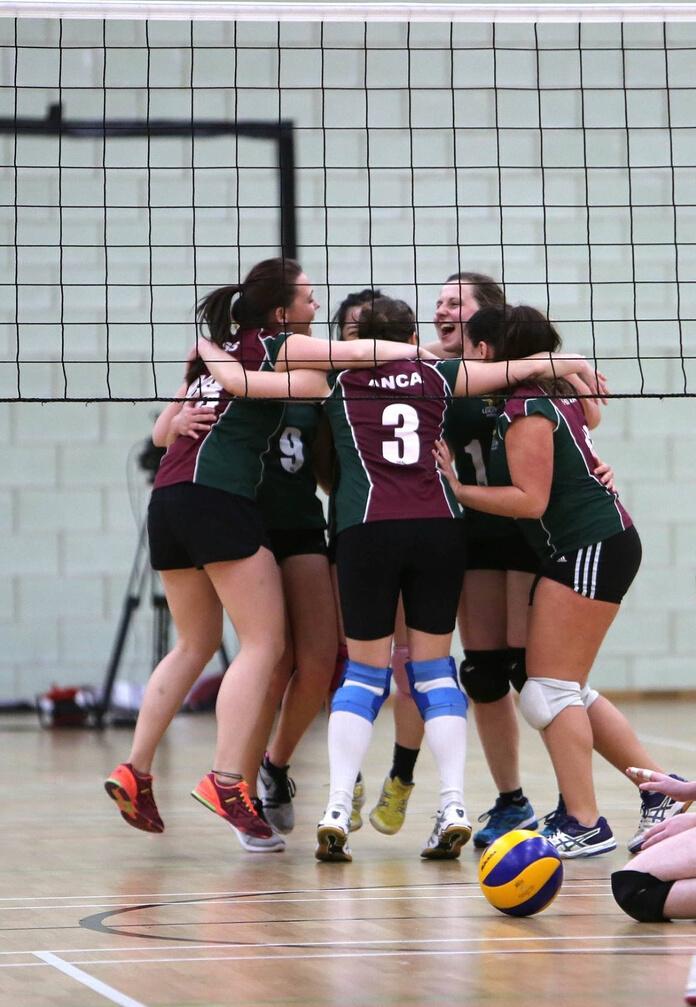
perspective can sometimes be more meaningful than thousands of pages of statistics, the photo competition allowed participants to embrace their creative side and inspire those around them to reflect on the meaning of diversity within communities.





The participants who entered the competition came from all over Europe and outside of it, from countries such as: Macedonia, Armenia, Georgia, Germany, Australia, Romania and the United Kingdom. The winners received prizes of €75, €100 and €150, and had their photographs shared in our online and printed publications.

"I took (this photo) in one of the oldest district(s) of Tbilisi which is famous for its unique multicultural nature. This small historic neighborhood is often called as 'center of religions' as you can find mosques, synagogues, Catholic, Orthodox and Gregorian churches next to each other. The directions (on the) sign (in) the photo indicate all(the)importantplacesinthisdistrict,amongwhichyoucanobserve a mosque, synagogue, Georgian Orthodox church and Armenian church.Eachofthesebuildingshaveitsownwonderfuloldhistory,but I think it’s not by chance that all of them are standing in the same neighborhood. For me, the district represents a 'Unity of Prayer'. This is how I also named the photo and why I link it to the theme of the WSCF-Europephotocompetition.Ithinkthestoryofthissmalldistrict in Tbilisi very much tells us about the importance of coexistence and dialogue among different religions, cultures, ethnic groups. And that, how different we should be in our believes, we still can live together as thosethreebirdssittingpeacefullyonthesign."


"I took the photo during the summer 2016 in Batumi, my favourite city in Georgia. I think that Batumi is really a special city - the 'Pearl of the Black Sea', as it is often called. It is situated in mountainous South-west Georgia on the Black Sea coastline,neighboringTurkey.
For centuries, it suffered many conflicts between the rival powers, while also nurturing complex religious, ethnic, and linguistic identities. Today, though, the city is very proud of its rich diversity and the cosmopolitan atmosphere. Walking in the streets of Batumi you can meet people of different ethnic, religiousandculturalbackgrounds.Thatiswhytakingthephotoofthestreetblockscolouredbychildren hadasignificantimpactonmebackin2016anditstillhastoday.ThatiswhyIthinkthephotoisrelated to the competition topics. To me that photo always represented the hope and love for life. Life that every personbuiltthroughouttheyears,likethestreetsarebuiltbytheblocks.Evenifsometimestheblocksare grey, they may turn into a wonderful colour, if we do colour them. I believe our lives are richer and meaningful with many colours. I believe that the society is stronger with its diverse population and I wish every person (no matter) how different they should be from each other (that they) should live life withdignityandrespect.InspiredbythecityandcontextItookthephotoaimingtocapturethespiritof togethernessindiversity.Inamedthephotoas'ColoursofLife'."
"On the bridge Pont des Arts in Paris, people add locks of different shapes and sizes, thus creating a colorful metal curtain along the bridge. The story and thoughts behind this photo are related with the society, where we live. Like the bridge, we add lockers on it, build relationships, usually several ones, sometimes bonding two lockers at the same time. We cannot unlock ourselves from this net, if the lockers and bonds are many. Likewise, the society... when we includepeopleandtiewithmanybonds,it will be simply impossible to marginalize, radicalizeorpolarize."

"This photograph was taken in Skopje in the middle of September. The photograph title is: 'Imagine a future together'. On the photograph the children are representing the future as and one of them is ''levitating'whichshowsanabsoluteprogress.Behindtheminthebackground,youcannoticeacitylight byEU."
 3rdPrize(1)-DianaYEGIAZARYAN,Armenia ‘LockmewithLove’,Paris,France
3rdPrize(1)-DianaYEGIAZARYAN,Armenia ‘LockmewithLove’,Paris,France
We are living in a reality in which more and more young people carry right-wing extremist views and marginalise groups of immigrants, refugees, religious and ethnic minorities, LGBTQ+ communities and others In response to widespread hate rhetoric and crime, some marginalised groups resort to isolation, feeling excluded from the mainstream society, which can in turn lead to extremism in other forms and at other levels. We decided to dedicate 2019 to identifying, preventing and combating extremism among young people, by utilising faith-based approaches as powerful tools to counter this growing concern in our society. With this aim in mind, we conducted the National Scoping Study on Youth Extremism, which had a particular focus on extremism leading to violence and on responding to the question: ‘what exactly is that we are dealing with when it comes to challenging radicalisation and extremism, including violent extremism, in our societies?’.
The study aimed to identify and understand the factors contributing to extremism leading to violence amongst young people and explore how a faith-based youth work, as one possible approach, can be used to prevent and tackle it. We identified three specific objectives, among which:
To provide a review of the current situation in member countries, as young people see and face the everyday reality of growing extremism and radicalisation;
To identify areas where faith-based youth work can contribute to the root factors that fuel youth extremism leading to violence, at both the local and national level;
To identify and showcase faith-based good practices, which can inspire youth-led solutions at the local, regional and national levels
The project leadership team worked with young leaders from the WSCF-Europe member movements to explore how young people make sense of, and experience, their society, particularly when it comes to exclusion, radicalisation and extremism. Indeed, the scoping study helped us to identify:
the factors contributing to extremism leading to violence; the role of religion; how a faith-based youth work can contribute to prevent and tackle it
The study covered many countries - Germany, the United Kingdom, Ukraine, France, Kosovo, Belarus, Italy, Austria, Ireland, Finland, Greece, Georgia, the Netherlands, Hungary and Spain –and provided an important contribution to the existing resources that shape better mechanisms of combating youth extremism leading to violence in Europe.



The second part of our 2019 work plan was comprised by the National Youth-led Initiatives, which focused on a variety of issues of local and national importance that are relevant to youth radicalisation and extremism leading to violence in Europe, and ways of combating it Through this part of the project, WSCF-Europe offered its member movements in Europe to work on the ground and address the issues they identify as root causes of youth radicalisation and violent extremism


The youth-led initiatives were implemented in four countries - Ukraine, Germany, Belarus and North Macedonia – and were facilitated by WSCF-Europe’s Cmapaigns Coordinator and by the members of the SCMs, in partnership with other faith-based youth organisations
Through these youth-led initiatives we managed to reach out and engage a large number of young people The project succedeed in raising awareness amongst young people, stakeholders and wider public on youth radicalisation and violent extremism and their root causes. It also helped to support and provide opportunities to young people, especially those from Eastern European countries, to challenge and change youth extremism and wider issues that lead to it
All the activities undertaken proved that active Christian young people stand together to promote and celebrate diversity, equality and inclusion, and that they can become active voices in preventing extremism, discrimination and violence.
"Peoplesaythatthebestideasandthoughtscometoyouwhileyouarealreadyinbedtryingtofallasleep, but for some reason your eyes cannot close and your brain seems to be working harder then ever. Some say that the magic happens while you are under the shower, just like the water comes out of the shower with all its power, so do your ideas spinning around your mind. My productive time was made possible thanks to technology. Working for an international organisation like WSCF-Europe, the home office is theonlyofficethemembersontheEuropeanRegionalCommittee(ERC)know.
My role as Campaigns Coordinator officially started in 2017, when WSCF-Europe joined the 'No hate speech' Movement, with our annual plan and activities of the campaign 'Year with no hate'. In 2018, the campaign “All for one. One for all” was the continuation of what we’ve started (in 2017). At the beginning,itwasmorethanclearwhattheroleisandwhatkindof'duties'andresponsibilitiesonecould have,butwhatwasnotsoclearformewashowaCampaignsCoordinatorfitsintotheworkofWSCFat our regional level. Because of my previous involvement in the ERC as a Project Coordinator, I was familiarwithourprojectsandthegoalswewantedtoachieve,andIalsoknewalmosteveryoneinvolved andactiveinlocalStudentChristianMovements(SCMs).
I wouldn’t like to tell you about all the projects, meetings and conferences I took part in, you can read about it in our reports. What I want to share with you is what I’ve learned and what WSCF-Europe is about. Thanks to the amazing work of our Regional Secretary Natia Tsintsadze and our Chair (until 2019) Zuzana Babicova, I had the full support and freedom to bring some of my ideas and to guide this process,aprocessofgrowingandlearningthroughoutthe4yearsofmyinvolvement.
It is hard when you don't see people physically to establish a good relationship. It is something that you have to invest your time and your energy in order for a relationship to work. Usually Staff and Officers Meetings were a start line, where SCMs could get to know each other and learn more about the campaign.In2018,weorganisedatraininginPalermo,Sicily,wherethegoalwastoexposethenegative narrative involved in hate speech and to share ideas and ways of promoting diversity and inclusion. Within the framework of that year, I took part in two local initiatives with SCM Finland and SCM Netherlands.

In2019,westartedwithaleadershipconferenceinthebeautifulGeorgia.Ofcourse,whenayounggroup of people gathers and discusses topics that matter, a fire starts burning in them. There are ideas, plans andactionsborn.Butoncewedepart,wetendtoloseourselvesormaybefeeldiscouragedbecauseoflack of resources and time, problems in the community, hard topics to swallow and so on. This is when the hardpartcomesandthereweresomanytimeswhereIwouldaskmyselfhowtosetfireinpeople'shearts again, motivate and remind them to finish what they’ve started without being annoying or sending too many emails where no response came back. (That happens a lot and I’ve learned not to take it personally).

Thisiswhereourweaknessis,butatthesametimealsoourstrength.IrealisedthatWSCF-Europeisall about building relationships. Just as it became very important to me, I tried to connect with as many SCMs as possible and to listen. It is amazing how much we learn and will understand if we choose to listen. Seeing friendships grow, projects being developed and young people brave and courageous willingtospeakupandorganisesmallgatheringswithfewpeoplewasagreatencouragementforme.It might be that different countries struggle differently, but the problems of exclusion, discrimination, extremism, social injustices and broken human rights are penetrating, on smaller or bigger scales, everywhere. In the uncertain times we live in today we must be reminded that one is certain: we have eachother,wehavetheWSCFcommunitytosupportandstandwithus.MytermontheERCisover,but I want to encourage everyone, students, young and old and especially the SCMs to actively be in communicationwiththeWSCF-EuropeOfficeandtosearchforhelpandsupportatanytime.
To the Campaigns team, my friends, I want to express my deepest gratitude for your work, time spent, online and in person, for sharing the joys and challenges, for the support through so many projects we managed to finish together. There really isn't anything that we can overcome if we decide to stay united and work together. For the current and future WSCF-Europe ERC Team, I wish you God's wisdom to continueto'Fightthegoodfightoffaith'(1Timothy6:12)."
During 2018 and 2019, the Milicia de Santa Maria, our SCM in Spain has carried out two artistic projectstomakeChrist'smessageknownandtobringitclosertopeople.
The first of these was the musical “Contigo”. This is a musical written by members of the movement who, through the history of a family, make known the 14 works of mercy, by dedicating a song to each one of them throughout the performance. This musical was performed during 2018 and 2019, on 8 occasions, in different cities across Spain, including Madrid, Alcalá de Henares, Burgos, Cáceres, Zamora and Valladolid About 80 people from the movement, of all ages - adults, children and young people - participated in these performances.

The second project was another musical, this time entitled “Of Gods and Men”, based on the film with the same name This musical tells the story of a community of Cistercian monks, who were killed in Algeria during the last century It was performed in English by about 30 young people from the movement, in St Andrew's Church, Presteigne, Wales, during an ecumenical day on 3rd August 2018. During this day, apart from the musical, there were several meetings with different Christian denominations, in which young people could talk, share and learn more about each other’s lives and ways of living their faith.







The Youth Protestant Federation in Italy (FGEI) has started a reflection about bodies and genderrelatedtopics,withintheGeneralAssemblythattookplaceinApril2016.

FGEI organised a study session on “corporeity” in 2017, with a particular focus on the following aspects: emotional sensitivity, sexuality and affectivity. They also developed a reflection on excluded bodies in a Biblical perspective, paying attention to the fact that every individual in their own body is a unique and beautiful creature to the eyes of God The movement relfected: "We are convinced it is essential to continue questioning gender identity and sexual orientation issues, mainly dealing with the dimension of corporeality, reflecting on how it affects and influences interpersonal relationships within our Federation, Church and society. Furthermore, we analysed the subject from three different perspectives: political, theological and cultural "
During their last General Assembly, that took place in December 2018, the movement decided to continue on this path, given the importance of the call addressed to Christians to take sides with the last among us on Earth, and considering as extremely worrying the atmosphere of systematic violence perpetrated at all levels, starting from the institutional one, towards people belonging to the LGBTQI + community
"We are aware of the cultural context that reproduces situations of gender violence and homo/transphobia, and the Federation strongly stressed that it rejects the culture of silence, which only increases discrimination The General Assembly has recalled the urgency of words and actions that are prophetic in building a life which can be free from violence, recognising the current danger caused by the praising of a heteronormative family and relational system, which increase public hatred and indifference
Given that such violence occurs on subjects that too often do not find support in their own context, we recognised the importance that the spaces we create and promote are therapeutic and healing, in line with the Gospel, restoring dignity and rights to all people
We are aware that this system is implicitly part of our way of thinking, and that a really transformative process can only arise from the relationships and dialogue with other human beings. In order to stimulate members of the Federation, groups or youth centres to reflect on the dynamics of these interactions and relationships, we have established a small task force. This team is in charge of collecting, producing and disseminating content and initiatives regarding LGBTQI+ issues. The hard work of this group has resulted in the undertaking called 'Giovedì Queer' (Queer Thursday): every third Thursday of the month, you can find on our website and social media a new article or new suggestions to continue the reflection on this topic Everyone can send their contribution, and we hope that it can be a way to keep reflecting and proceeding with the commitment for the construction of safe spaces, the building of an environment made of listening and inclusion, where everyone can find support and mutual respect "


MOZAIK is the ecumenical journal of WSCF-Europe and was established in 1992 It is currently published once a year following the thematic of the Federation conferences, study groups or training sessions. As a forum of viewpoints and opinions, that crosses denominational and cultural barriers, it aims to reflect the wide variety of opinions and viewpoints present among the different Student Christian Movements (SCMs) in dialogue.
The 2018 issue dealt with one of the most important topics for Europe’s identity and social cohesion in the 21st century This is the needed inclusive character that Europe’s multicultural and diverse population requires in order to avoid reckless nationalisms and the mermaid songs that come from some far-right wing ideologies. Its title was "Diversity and inclusion from a youth European perspective" and it followed the thematic line of the previous issue and its stress on the plight of refugees, migrants, and others, who come to make this continent their new homes. Nevertheless, this issue expanded its focus in order to be nourished with the experiences and reflections from young Christian students and activists from other regions As usual, the issue aimed its attention at the reflections from our previous study sessions and conferences, this time in Strasbourg and Thessaloniki.
The 2019 issue was entitled "Together, Against Youth Extremism!" and was about extremism, its causes, manifestations, types and consequences. Why does the term extremism have such a negative connotation in contemporary Europe? Do 'good' extremisms exist as well? What is the logic behind such a phenomenon? What is our role as young Christians in relation to youth extremists? These are the kind of questions we tackled on this issue. As it is customary for MOZAIK, the issue aimed its attention at the reflections from the previous study sessions and conferences, this time in Kobuleti and Utrecht
The transition process of the position of Editor-in-Chief of MOZAIK from James Jackson to Daniel Jara was characterized by a very fluent dialogue and a short mentoring process Because of the geographical possibility, the former and new Editor-in-Chief had the chance to meet and have long and significant discussions about MOZAIK, its editorial policy and future. The entire process was facilitated by the leadership of WSCF-E uropeand was a positive experience
The 2020 issue of MOZAIK faces different challenges and opportunities, mainly because of the COVID-19 challenge and the impossibility of WSCF-Europe to maintain the previously planned seminars and conferences. In this sense, much dialogue will be needed with the Regional Committee in order to clarify the steps to be taken and how MOZAIK can continue to offer a youth perspective on highly relevant topics.

Between 3 and 8 October 2019, delegates of Student Christian Movements (SCMs) from across Europe, WSCF-Europe committee and staff members, and WSCF-Europe partners and Senior Friends, have all gathered in Copenhagen, Denmark, for the 2019 European Regional Assembly The Assembly is the highest decision-making body of WSCFEurope, and gathers bi-annually. The last Assembly took place in 2017, in Prosperous, Ireland.


The Assembly discussed and voted on the future of the Federation, including: voting on a number of amendments to the WSCFEurope By-Laws, voting the new European Regional Committee (ERC), who will lead on the activity of the organisation for the next two years; and discussing topics and activities that WSCF-Europe could explore over the next two years. The Assembly was happy to elect a new ERC composed by both old and new members, and chaired by former Programme Coordinator, Christiane Gebauer. There were also a number of vacant positions, which were
subsequently filled-in through open calls to the movements.
Apart from performing the main functions of the European Regional Assembly, attendees have also participated in a series of sessions focused on improving the dialogue and connections between WSCF-Europe and different affiliated and associated SCMs, but also between SCMs themselves The delegates discussed how to improve communications, how to work closely to organise events and run campaigns, and what kind of support they would like WSCF-Europe to offer to the movements. They also joined a number of workshops, on topics such as climate change, social action, and theology and interfaith dialogue.
"We were happy to be welcomed and supported by YMCA/YWCA Denmark which offered us one of their houses, both as an accommodation and place of gathering. At this place, they had a special concept that includedsomeoftheirownmemberslivinginthehouseand,inreturn,doingsomeworkfortheSCM,such ascookingandcateringforguests.ThatisalsowhywehadtheopportunitytotrydifferenttypicalDanish food(...)(and)allthesurroundingsoftheSCMDenmarkhousewereverycosyandpleasing.

During the activities, all the members of the ERC and the participants made sure that everyone felt safe and welcomed. This was also supported by a handbook, which was sent to the participants before the gathering (...). With the further help of introduction games, a trustful and friendly atmosphere was created. This was extremely important because the participants, guests and hosts were from different social,denominationalandculturalbackgroundsandmostofthemweren’tnativeEnglishspeakers.With thisatmospherecreated,duringthegathering,theparticipantsfeltfreetogetinvolvedduringthedifferent activities.
Thisinvolvementwasevenmoreimportantwhenitcametothe'drier'partsoftheAssembly.Followingthe election of the ERC, we attended long sessions about the amendments made to the By-laws of WSCFEurope, in which we discussed and voted for or against those amendments. Furthermore, the upcoming General Assembly (GA), which was going to take place in June 2020, in Berlin, was a big topic of the Assembly, as Europe was the hosting region of the GA (...). Thanks to the engagement of all the participantsandguests,wewereabletogetonwiththeseimportanttaskswithouttoomuchhesitation.
We also welcomed guests from different partner organisations, who introduced their work to the Assembly. We heard presentations by Joy Eva Bohol, Program Executive for Youth Engagement at the World Council of Churches, by Torsten Moritz, General Secretary of the Churches’ Commission for Migrants in Europe, and Angelita Tomaselli, Chair of the Ecumenical Youth Council in Europe. Besides their informative talks, we were also pleased to welcome their engagement during the different thematic workingsessionsoftheAssembly.
The most creative part of the ERA was when the participants were divided into smaller working groups focused on different topics. These topics reflected the thematic program of WSCF Global. Within the workinggroups'Eco-justice','AdvocacyandSolidarity', 'Interfaith','GenderandSexuality'and'Theology and Spirituality' students had the chance to work on a topic which suited their interests. The main goal wastocreateprogrammeguidelinesfortheincomingERC.
All in all, participation was a big part of the Assembly as all the thematic work couldn’t have been so fruitfully done without the enthusiastic and open-minded engagement of the delegates, ERC, hosts and guests. Every morning and evening, we had the possibility to reflect on this work during ecumenical prayers,whichwerepreparedbydifferentmovements.Sharingknowledgeandfaithwerekeyinfollowing oursharedmission,toexploreourcommonfaithinJesusChrist,whichmakesusone."
The WSCF-Europe leadership team met regularly to review the progress of the work and plan the future programmatic and organisational work for the months to come. In 2018 and 2019, the European Regional Committee (ERC) and staff members held three in-person meetings in Palermo - Italy (May 2018), Bad Malente - Germany (May 2019) and Copenhagen - Denmark (October 2019).
The highlights of the agendas of all these meetings included:
providing updates on the ongoing work on movement-building and movement-strengthening; brainstorming on relevant developments and strategic direction; planning upcoming activities and campaigns; designing and implementing effective and targeted tools for communication with member movements and partners; reporting on finances and developing sustainable fundraising methods; developing new strategic partnerships, networking and representing WSCF-Europe at partner events;
providing updates from WSCF Global, in particular about the preparations for the 2020 General Assembly in Berlin
The team also used these opportunities to reconnect with the local Senior Friends and members of the movements in the countries the meetings were organised We were inspired and encouraged by our dear friend and pastor Peter Ciaccio and his hard work for the local community and church in Palermo. Hearing the stories of how the current students' engagement and ecumenical life looked like back in the '90s, when Peter was an active member in the Federation, was both interesting and inspiring.
Local cultural trips in Bad Malente and Copenhagen further strengthened fellowship and team spirit among the leadership board We are deeply thankful to YMCA and YWCA Denmark for their warm hospitality during our stay in Copenhagen, and special gratitude to our members and friends in Germany for providing a friendly venue and taking care of our meals.
We greatly appreciate the annual support received from the Erasmus+ Programme of the European Commission to organise these working meetings of the leadership team, without which our work would be much harder to deliver



ZuzanaBabicova Chairperson GlobalExecutive CommitteeMember


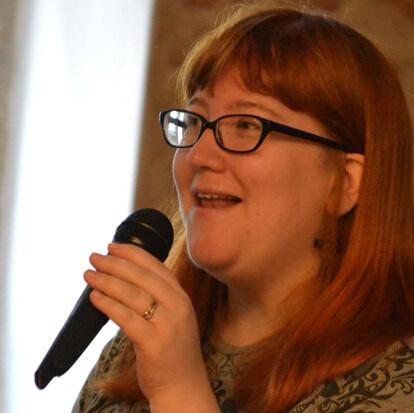

ChristianeGebauer ProgrammeCoordinator
EmanueleDeBettini Vice-Chairperson
LinaLeonavičiūtė ProgrammeCoordinator (UntilSeptember2018)




ClaireWilkins Treasurer(UntilMay2018)
PavlinaManavska CampaignsCoordinator

LuiseKlein LinksCoordinator
KristaAutio GlobalNetworking Coordinator
AnnikaFoltin GlobalExecutive CommitteeMember

NatiaTsintsadze WSCFExecutiveforEurope ProgrammeDirectorfor InterfaithDialogueand Cooperation
AndreaFranic MOZAIKArtEditor
MariaAtanasoaei CommunicationsOfficer


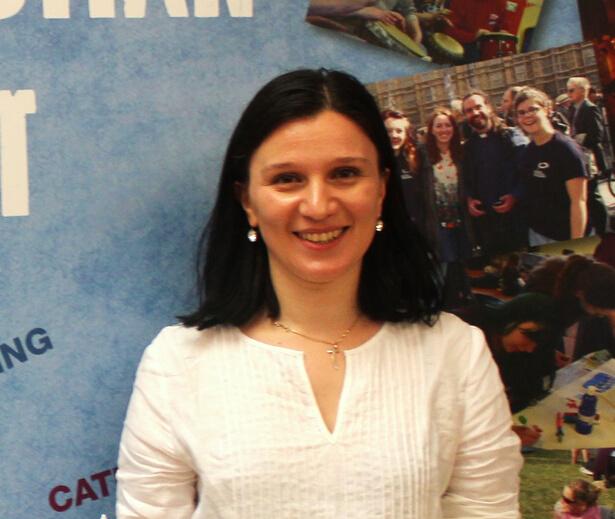
KaterinaMavroeidi MOZAIKIllustrator(2018) EventPreparatory CommitteeMember

MelanyBresciani OfficeAssistant (UntilJune2018)


JamesJackson

MOZAIKEditor-in-Chief (UntilJuly2018)
DanielJ.Jara MOZAIKEditor-in-Chief

(FromAugust2018)
MatthewFriesner MOZAIKEditor

MarharytaTaraikevich MOZAIKIllustrator(2018)
Elijah‘Tekarts’Wachiraa MOZAIKIllustrator(2019)
YanTsang MOZAIKIllustrator(2019)
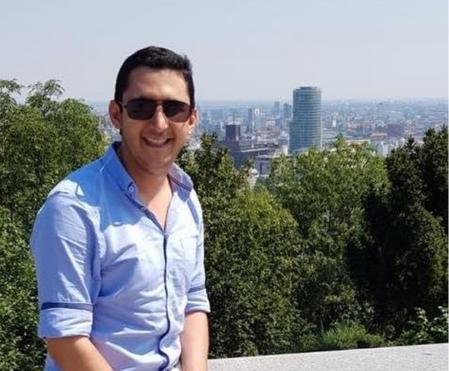

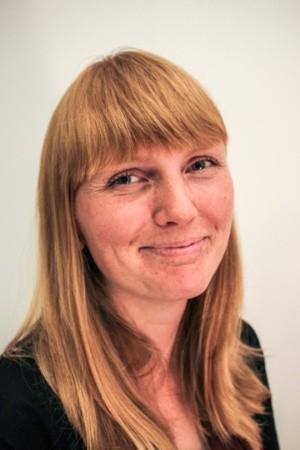


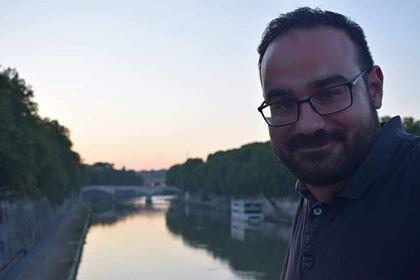
PaschalisGkortsilas
FrancescaVincenzi


CommunicationsandOffice
Intern
YuliaBajelidze
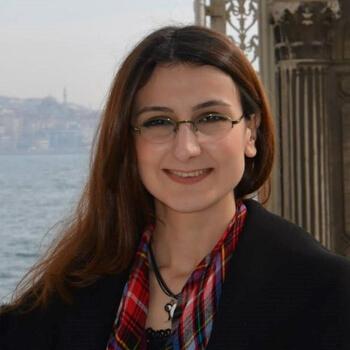
GlobalAdvocacyandSolidarity CommitteeMember
EventPreparatoryCommittee
Member
GiuliaDalmonte

RepresentativetotheWSCF WorkingGrouponIdentity, DiversityandDialogue
NatalliaVasilevich
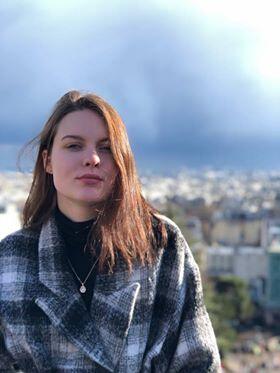
RepresentativeCECThematic GrouponHumanRights
EventPreparatoryCommittee Member
RamyFarouk

EventPreparatory CommitteeMember
VilteKeturkaite
EventPreparatory CommitteeMember
EventPreparatory CommitteeMember
KnutNatskårSvihus
EventPreparatory CommitteeMember
KristineEvje
EventPreparatory CommitteeMember
SamWilliams
EventPreparatory CommitteeMember
AnnaLavryk
EventPreparatory CommitteeMember
KaterynaPotarenko
EventPreparatory CommitteeMember

In 2018-19, WSCF-Europe continued to collaborate with partner organisations and be actively engagedintheecumenical,interfaithandsecularplatforms.
We took many opportunities to represent the Federation at various meetings and working groups dedicated to advancing human rights, tolerance and non-discrimination.
We built even closer collaborations with the Conference of European Churches (CEC) in the area of Human Rights, by contributing to the Summer School on Human Rights (17-21 June 2018, Lisbon, Portugal) and the Conference on Human Rights (17-19 October 2019, Malaga, Spain).


We strengthened the role and engagement of the Christian youth in the Religions for Peace (RfP) global network, by being part of the RfP Global Assembly (19-23 August 2019, Lindau, Germany) and contributing to the Multi-religious and Multi-stakeholder Partnership for Peace and Development meeting (11-13 December 2019, New York, USA) and by being a member of the Religions for Peace Europe Steering Committee (23-23 October 2019, Rome, Italy).
We encouraged faith-based student and youth organisations to take an active role with us in building more inclusive and liberal societies with shared commitment to human dignity. This commitment brought us together to lead the renewal of the Interfaith Youth Network in Europe ( i A ) d i ful collaboration with the Forum of European Muslim Youth 2019, Utrecht, Netherlands).
We would li financial support, our work would not be possible. Your trust and support gives us strength and independencetoempoweryoungpeopleallaroundEuropeandbringjustice,peaceandsolidarity toourcommunities!
Thelargestpercentageofourfundingcomesfrom:
WSCFGLOBALOFFICE
EUROPEANYOUTHFOUNDATIONOFTHECOUNCILOFEUROPE
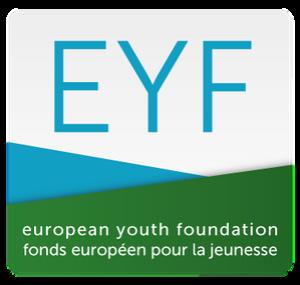
ERASMUS+PROGRAMMEOFTHEEUROPEANUNION


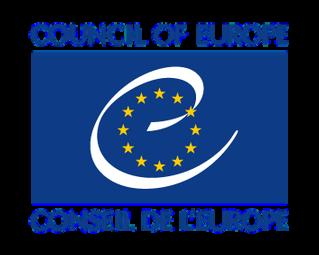

OTTOPERMILLEFUNDOFTHEWALDENSIANCHURCHINITALY.
Wearealsodeeplygratefultothefollowingamazingpeoplefortheirgenerousregulardonations: DAVIDCLEARY,VERAPAPP,ZUZANABABICOVA,PAVLINAMANAVSKA.

“SothatallmaybeOne.UtomnesunumSint”
World Student Christian Federation - Europe
Via Pascoli 1138122, Trento, Italy
Email: wscf@wscf-europe.org
Phone number: +39 329 2099274
www wscf-europe org

